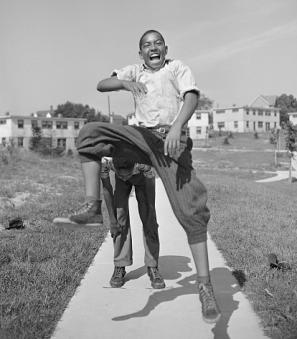The Election Day Riot of 1857
Those who look at the sorry state of politics in modern America can take solace in the fact that we do not face the savagery that took place in the name of democracy in 1850s Washington, D.C. During those tumultuous days leading up to the Civil War, Washington, and much of the country was in the grip of heated debates over slavery and immigration that often turned violent.
There were many organized groups during the early to mid-1800s who held a deep mistrust for immigrants from Europe because it was believed these people were destroying the fabric of white, Protestant America by overwhelming the country’s social institutions and government services.
One such group, the American Party, was determined to force their anti-immigrant agenda on the voting public by any means necessary. This political party became commonly known as the Know-Nothings because they answered any question about the inner workings of their organization with the phrase, “I know nothing.”
The Know-Nothings were different from other fraternal groups that arose during this time in that they “combined social functions with the explicit political goal of electing to public office native-born Protestants who would translate their anti-immigrant, exclusionary beliefs into public policy,” write Susan Burgess and Kate Leeman, both from Ohio University. “To that end they sought to bar foreign-born citizens from holding office, deport immigrants unable to support themselves…and lengthen the time immigrants were required to reside in the United States before applying for citizenship.”[1]
The Know-Nothings were not averse to resorting to violence to achieve their ends. They terrorized immigrants and voters who supported any pro-immigration policy, namely Democrats. Since this was before the time of secret election ballots, voters were supplied with paper ballots by their preferred parties which they brought to their polling stations. “The Know-Nothings began to use distinctly colored ballots, which made it easier to identify supporters of the party as well as those who were planning to vote for others,” write Brenda J. Lutz and James M. Lutz of Purdue University. This allowed the Know-Nothings to more easily target voters who planned to vote against their candidates.[2]
Violent voter suppression led to riots in a number of American cities, including San Francisco, St. Louis, New Orleans, and Baltimore, where in 1856, thugs associated with the Know-Nothings were successful in keeping Democrats from being elected to office, effectively ceding control of the city to the nativist party.
“Rioting and violence on election day in Washington, D.C., in 1857 was a direct extension of the violent tactics that worked so well in Baltimore,” write Lutz and Lutz.[3]
On Election Day, June 1, thugs from street gangs such as the Plug Uglies and the Rip Raps were hired by the Baltimore Know-Nothings to take a train to Washington and do whatever was necessary to disrupt the elections. They arrived in large numbers and attacked voters at polling stations near Mount Vernon Square and Pennsylvania Avenue NW.
Unrest quickly spread throughout the city as non-native voters and native voters who supported them were set upon and beaten by the gangsters with rocks, knives, and bats. Local police were overwhelmed by the large crowds, and Washington Mayor William Magruder called upon President James Buchanan to restore order.
Buchanan called out a force of 110 Marines to protect polling places throughout the city. The Marines moved throughout the capital, and in some cases their presence alone was enough to enforce calm in the streets. Much of the fighting actually took place later in the day when the gangs had mostly dispersed. Some witnesses claimed at the time that the Marines opened fire on a group of Plug Uglies without provocation, killing six men and wounding dozens more.
The actions of the Marines that day, and Buchanan’s use of military force were later called into question. “The strongest action to repress Know-Nothing electoral violence occurred where no violence was going on,” writes historian David Grimsted. “It was a slaughter of Americans peaceably voting by marines ordered out by a proslavery president.”[4]
The Know-Nothing Party dissolved before the onset of the Civil War, with its anti-slavery elements folding into the newly formed Republican Party. Unfortunately, the legacy of political violence in Washington, and around the country has yet to likewise fade into history.
Footnotes
- ^ Susan Burgess and Kate Leeman, “CQ Press Guide to Radical Politics in the United States,” CQ Press, New York, 2016.
- ^ Brenda J. Lutz and James M. Lutz, “Terrorism in America,” Palgrave Macmillan, New York, 2007, p. 42.
- ^ Lutz and Lutz, “Terrorism in America,” p. 42.
- ^ David Grimsted, “American Mobbing, 1828-1861: Toward Civil War,” Oxford University Press, New York, 1998, p. 242.


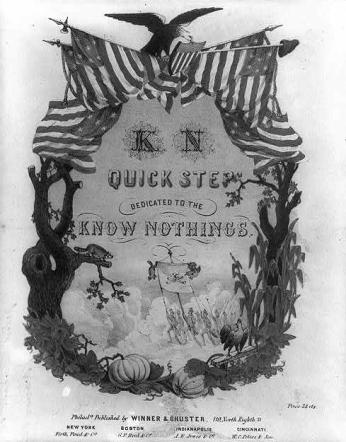
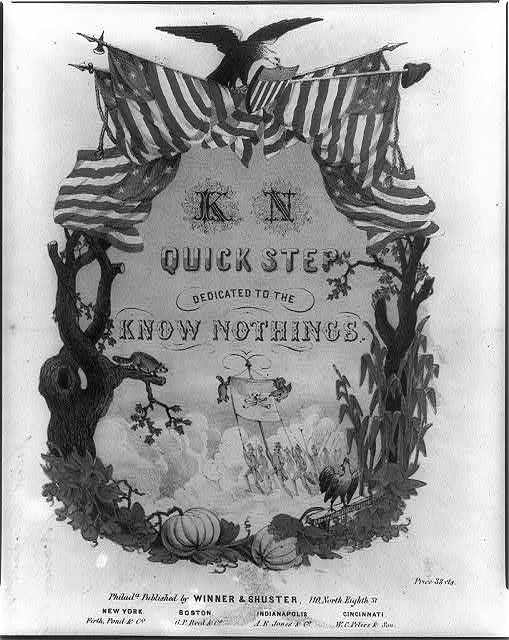
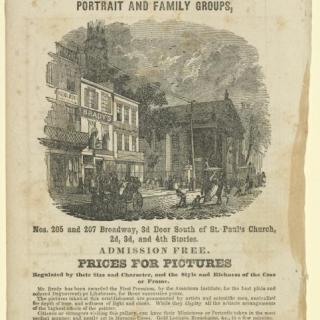
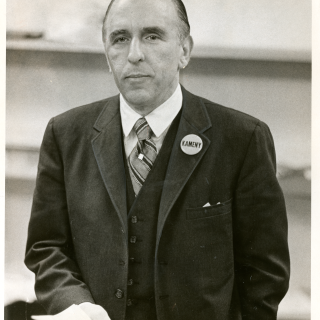
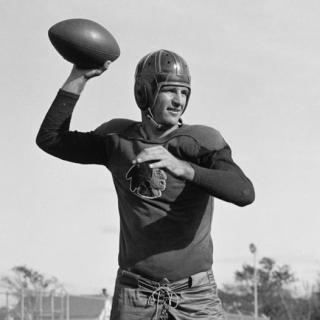
![Sketch of the mythical fuan by Pearson Scott Foresman. [Source: Wikipedia]](/sites/default/files/styles/crop_320x320/public/2023-10/Goatman_Wikipedia_Faun_2_%28PSF%29.png?h=64a074ff&itok=C9Qh-PE1)











